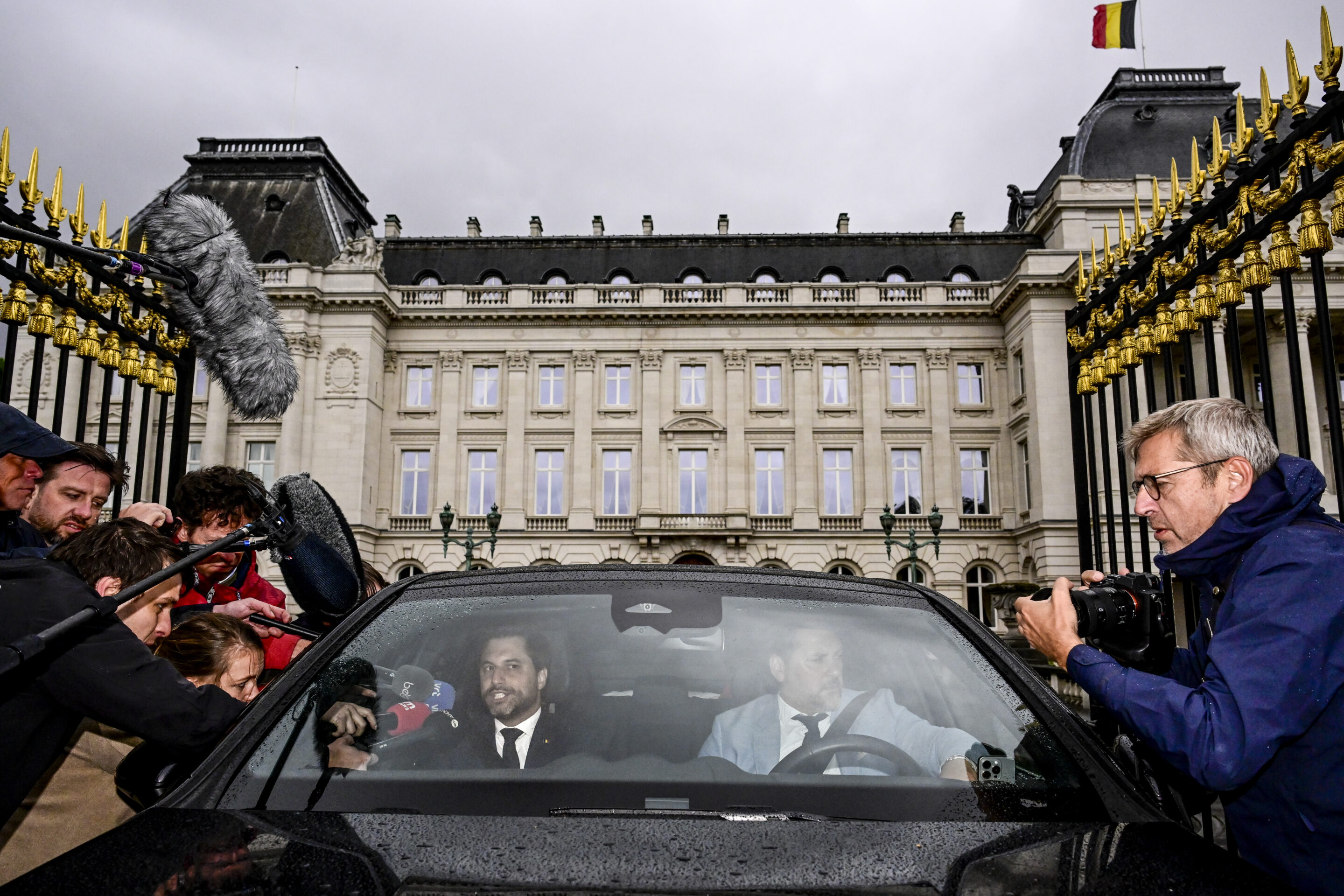As the results trickled in during last Sunday’s grandstand elections in Belgium, a new political picture emerged: a right-wing Wallonia and a far-right Flanders partially held back by a resurgent left.
Toppling the Belgian political cliché – a left-wing Brussels-Wallonia and a right-wing Flanders – in last Sunday’s election was one of the larger tectonic shifts, but across the board, Belgium lurched to the right.
Big wins for Flemish nationalists N-VA and French-speaking liberals MR both exceeded all expectations, with the former coalition partners (2014 to 2019) becoming the biggest parties in their respective linguistic communities.
After years of a progressive so-called "Vivaldi" coalition government, which helped the country through the biggest part of the Covid-19 pandemic and the following energy crisis, the country has elected right-wing leaders almost everywhere. For voters, these crises have inspired a desire for change, electing a new parliament that will most likely (but then again, this is Belgium) be heavily slanted to the right, which has taken some by surprise.
"We sometimes tend, a little too quickly, to consider that Flemish public opinion is more to the right than the Walloon public, in the French-speaking world and in the wider sense, Brussels," political expert at the Centre for Socio-Political Research and Information (CRISP), Benjamin Biard told The Brussels Times. "In reality, this is not true. Public opinion broadly shares similar attitudes, for example on migration, security and socio-economic issues."
Biard argues that difference between the regions lies in the priority given to issues traditionally. "As far as opinion is concerned, it's not fundamentally different. There's no reason a priori why the right or the centre-right shouldn't also make inroads in Wallonia."
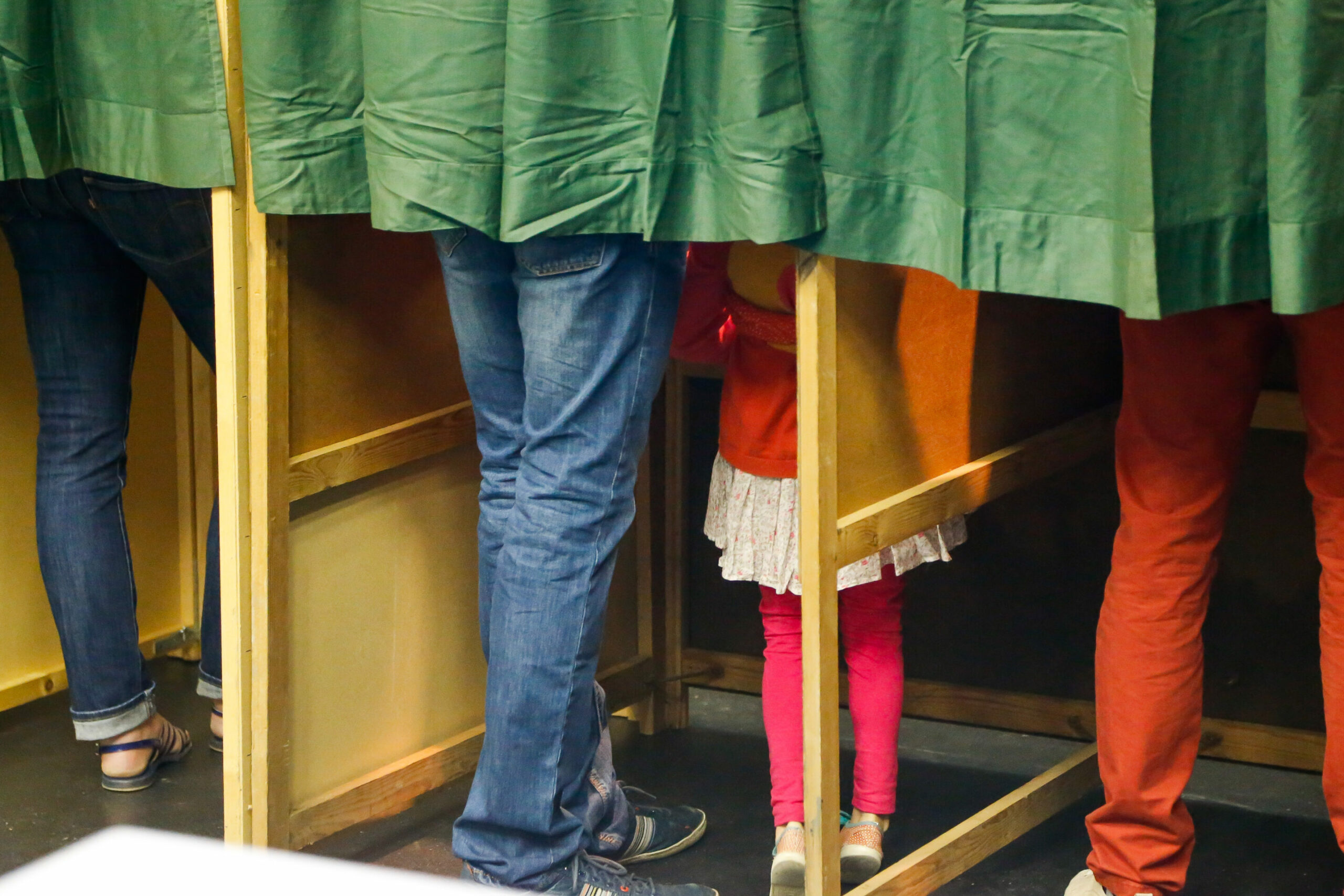
Credit: Belga / Bruno Fahy
After their electoral successes, Francophone right and centre-right parties MR and Les Engagés (who some had on the verge of extinction) will form the next regional Walloon Government, and also have a key role in forming the next Brussels-Capital Region Government.
Another aspect is that, despite compulsory voting, one million Belgians did not turn up to vote (turnout was 87.42%), out of a population of over 12 million. This is an increase compared to 2019 and one of the silent takeaways of the 2024 elections.
Yet ahead of the vote, there was one thing on everyone’s minds: will Vlaams Belang achieve the unthinkable? And what does this mean for Belgium? While talk of breaking up Belgium makes for a good headline, the reality is very different, as Sunday underlined.
Historic far-right gains
Indeed, after five years of topping the polls, Vlaams Belang’s predicted landslide did not come to pass – even if the far-right party’s breakthrough in Flanders was still historic, winning 20 seats after picking up 961,601 votes (13% nationally) – N-VA, the party that received the most votes nationally, won 24 seats.
"Vlaams Belang did not achieve the expected result, but today we can see that, at the federal level, it has achieved the best score ever obtained by the far-right in Belgium," Biard explained.
Above all, the party achieved its best result at the regional level since 2004. "It's important to remember that the party is still making progress at the electoral level, it's a setback only compared to what many polls have been indicating for the last five years."
However, the party was still beaten by fellow Flemish nationalists N-VA, who advocate for a more moderate approach to Flemish independence but are firmly right-wing on many issues and particularly strict on migration or social welfare.
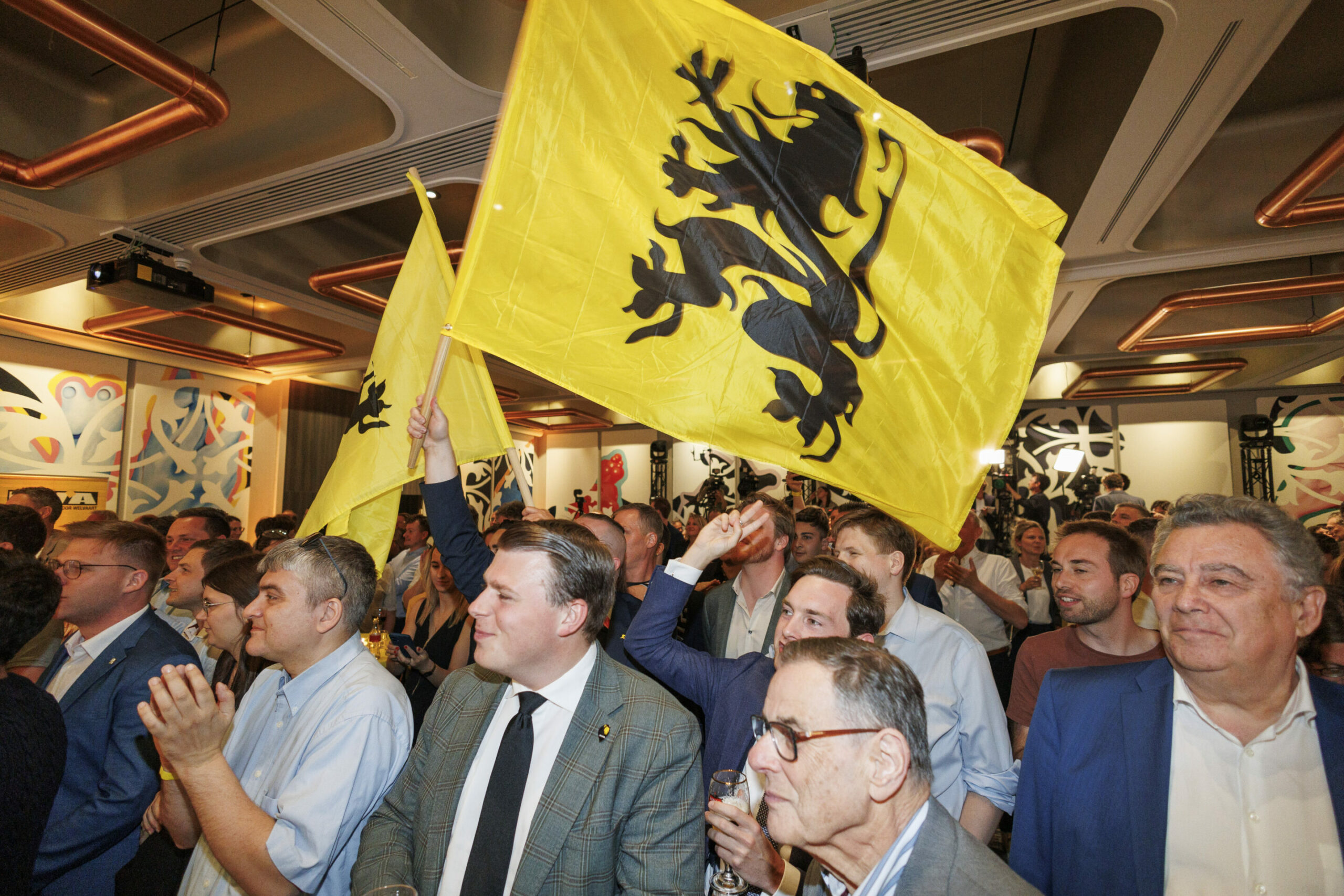
Party militants attend the post-election meeting of Flemish nationalist party N-VA, in Brussels, Sunday 09 June 2024. Credit: Belga / Nicolas Maeterlinck
Yet, when asked why Vlaams Belang didn’t do even better, CRISP’s political expert maintains it was down to incorrect polling but also the strategy of N-VA in marginalising the far-right. "N-VA and Bart De Wever’s strategy which consisted of saying: there is no point in voting for Vlaams Belang anyway because they won't govern with us."
This strategy is contrary to what happened in the Netherlands, where fringe far-right figurehead Geert Wilders emerged as the winner in the 2023 elections.
Biard argues that this was largely because Mark Rutte’s VVD party reached out to the far-right throughout the campaign, saying that they could envisage a coalition with this far-right formation. "We have seen that the result was that the far-right was strengthened at the ballot box."
Another important aspect was that Vlaams Belang did not manage to "de-demonise" its image as much as it had hoped. "Some of these may be due, for example, to Tom Van Grieken's failure to denounce the conviction of one of his former MPs for racism, Holocaust denial and carrying illegal weapons last March."
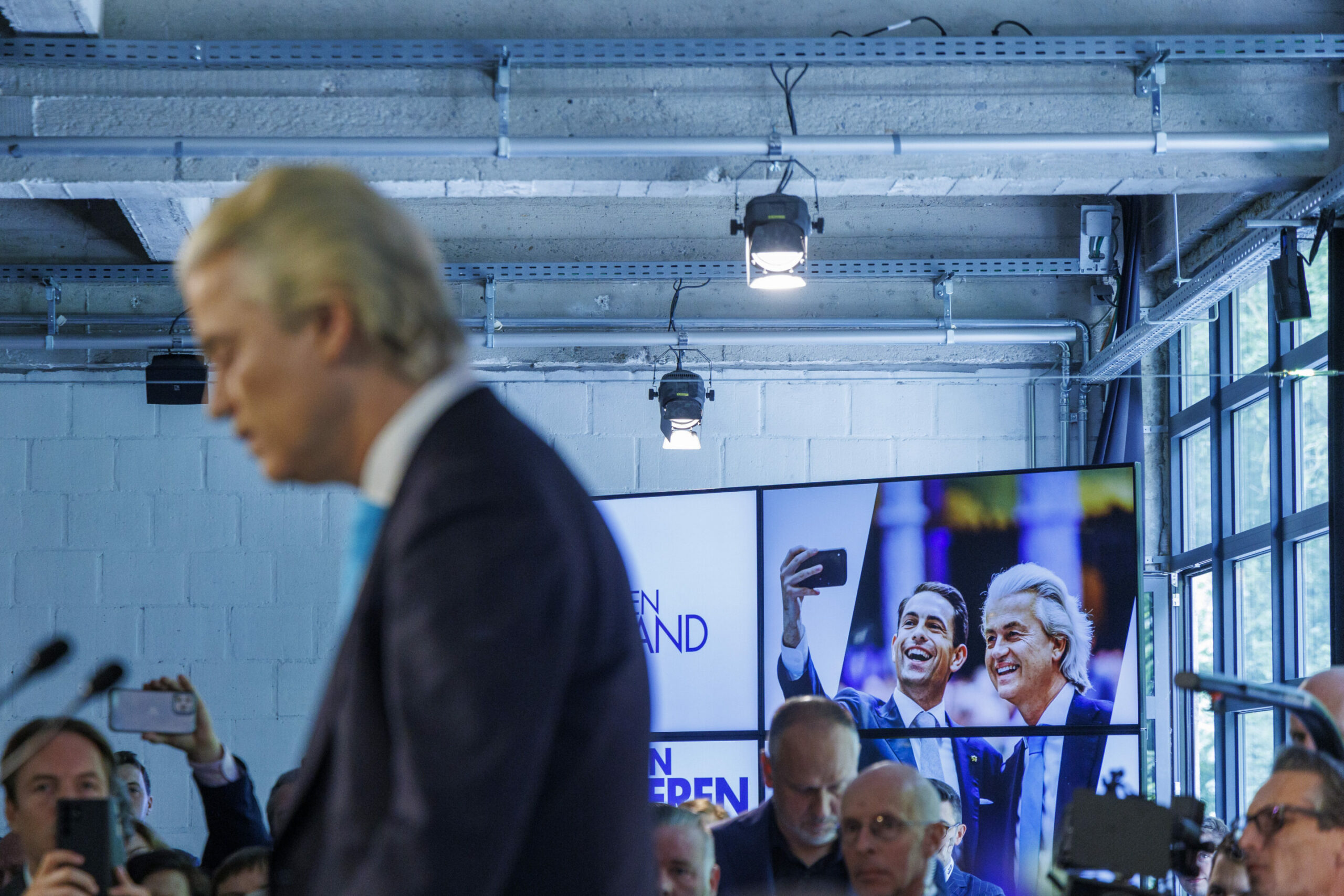
Dutch far-right politician Geert Wilders delivers a speech at a meeting of Flemish far-right party Vlaams Belang, in Aalst, Saturday 08 June 2024. Credit: Belga / Nicolas Maeterlinck
However, Biard does not believe that the association with Russian and Chinese foreign interference played a major factor, as it wasn’t at the centre of media and political attention.
Rather, he believes the strengthening of the left-wing formations in Flanders, Vooruit and PVDA was a key reason. "They did very well in the elections, managing to attract voters who might have been tempted to join the far-right."
Belgium's orchestra conductor
One of Sunday’s big losers was a tearful Prime Minister Alexander De Croo, whose centrist party Open VLD was battered at the ballots. The Flemish liberals paid a dear price for De Croo's visibility at the helm of the Vivaldi government.
While the outgoing leader himself still featured in the top ten most popular politicians in Belgium, Open VLD’s result flirted with disaster, barely making the 5% threshold (by 0.4%) at the federal level. The party faired better at the regional level, just below 10% in Flanders and Brussels.
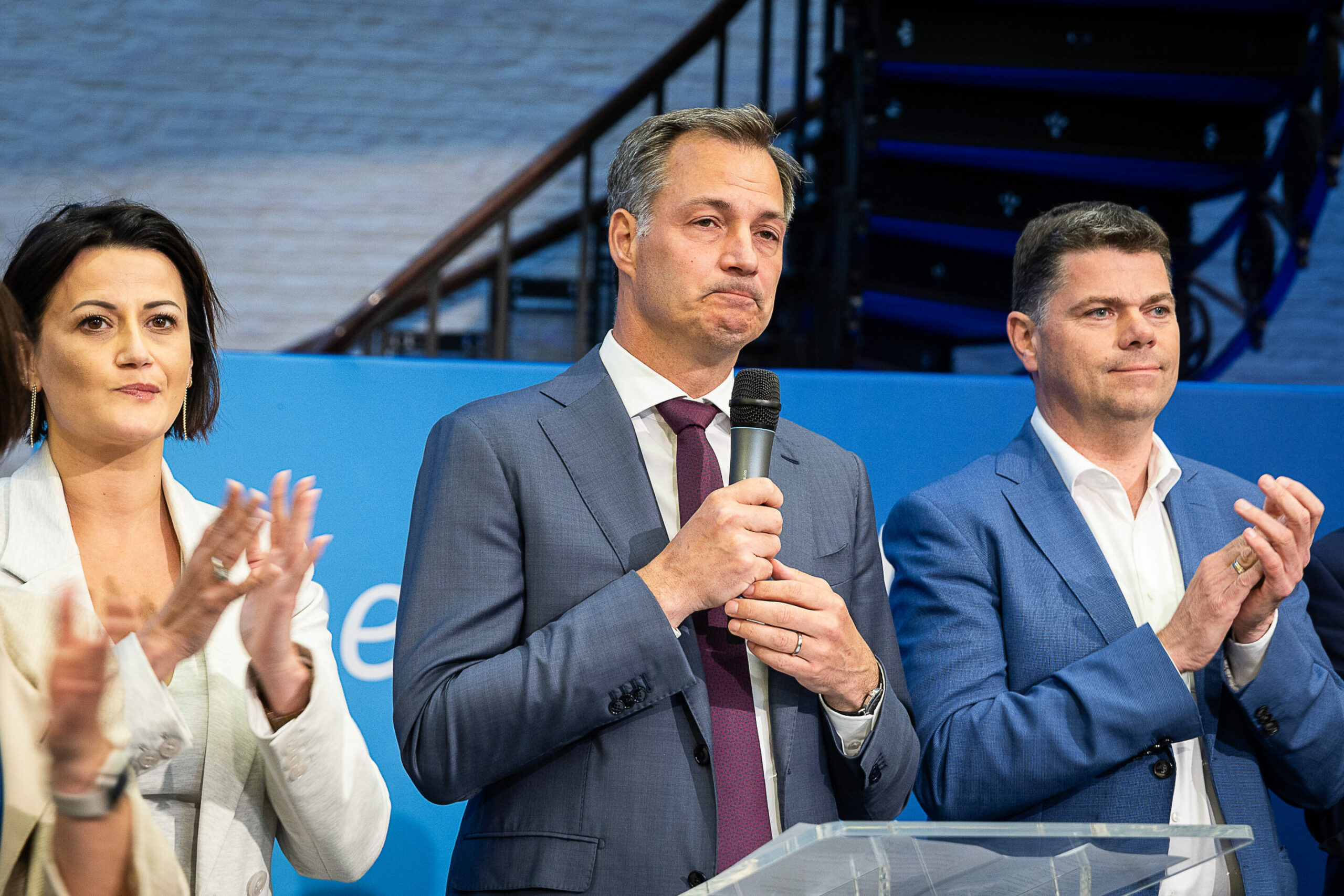
Prime Minister Alexander De Croo gets emotional at Open VLD's post-election meeting. Credit: Belga / James Arthur Gekiere
"De Croo perhaps insufficiently promoted the Liberal brand and tried more to act as a kind of conductor enabling a compromise to be found between the various formations present," Biard said, who added that Open VLD’s competition on the right in Flanders was a crowded field.
"We can see that competition is quite intense on the right of the political spectrum in Flanders, first and foremost through the N-VA, which is also positioned on the right on socio-economic issues and which has been able to win back a certain number of votes."
Omnipresent 'opposition'
One of the greater ironies of the anti-government vote was that MR, the big winner in French-speaking Belgium, was a prominent part of the outgoing government, as exemplified by Hadja Lahbib’s prominent role as Foreign Minister.
Yet MR leader George Louis Bouchez's outspoken communication, helped by the fact he was not a member of the Federal Government and instead sat on the Mons Municipal Council, often made him one of the government’s loudest critics – even clashing with his own liberal political family, Open VLD.
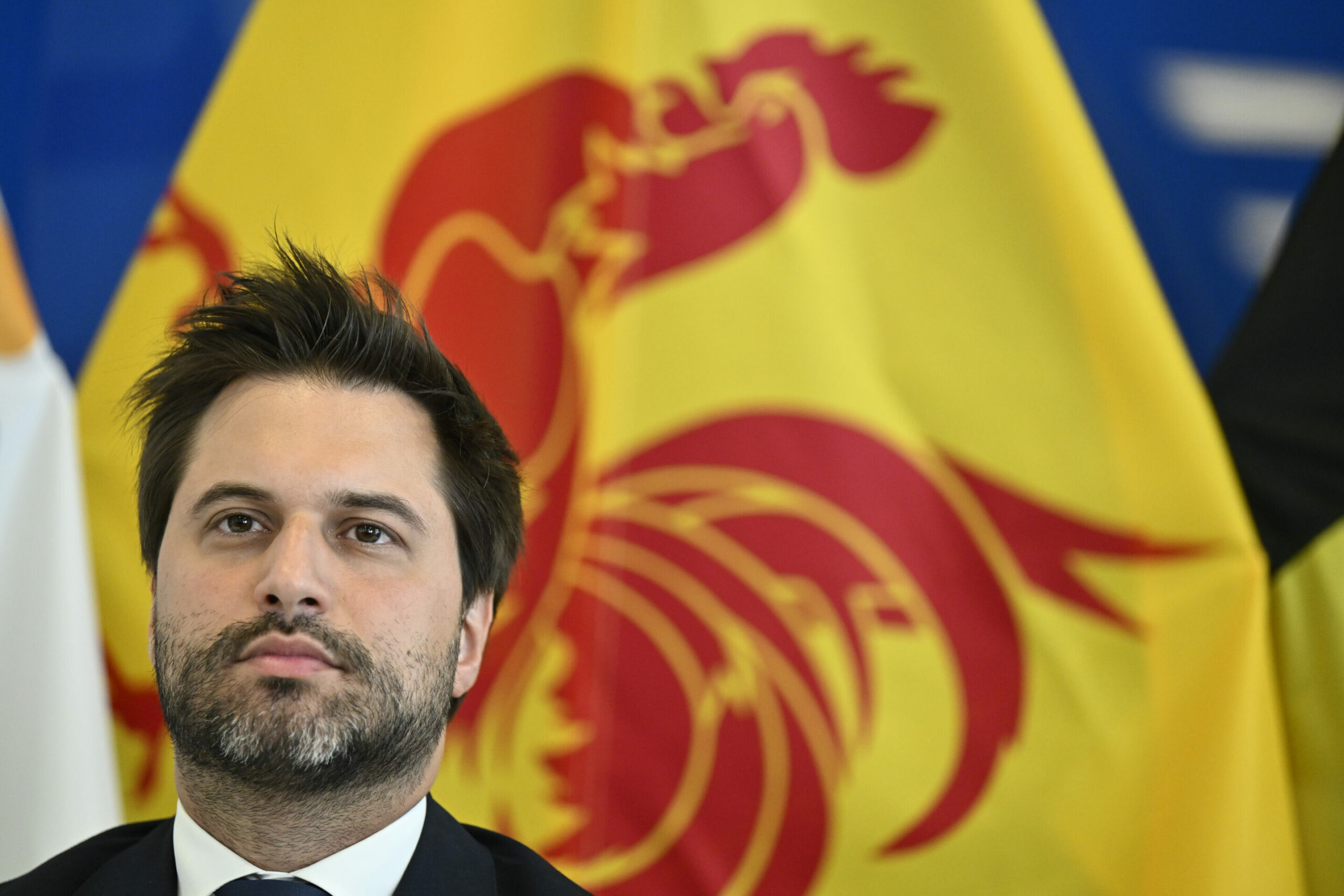
MR leader Georges-Louis Bouchez pictured during a press conference of French-speaking liberal party MR and French-speaking christian humanist party Les Engagés, Tuesday 11 June 2024 in Brussels. Credit: Belga
"MR has been very critical of the Vivaldi government's record, and of the De Croo government, which has not really taken responsibility for its record," Biard explained, adding that Bouchez’s main tactic was communication – reinforced by a stance of having one's foot in the door, but at the same time questioning quite regularly what has been adopted, during the campaign.
"With a party leader who is omnipresent, sometimes quite direct, who also manages to present the MR as almost part of the opposition in recent years – you can bet that this was one of the factors that enabled Bouchez and MR to gain votes in this election," Biard continued.
Drug violence and security
In Brussels, the spate of drug-trafficking-linked shootings in February this year came at time where there was already a general feeling of deterioration of security – exacerbated by rising homelessness, post-pandemic poverty levels and the ongoing asylum seeker reception crisis which pushed many vulnerable individuals onto the street.
Crucially, the Socialist Party (PS) has paid the price for a perceived inaction on security. It holds both the Brussels Minister-Presidency (Vervoort was widely criticised as being slow to act and deflecting blame) at the regional level and also leads some of the most affected communes: Saint-Gilles, City of Brussels and Anderlecht. Belgians will elect their new local representatives in the October municipal elections.
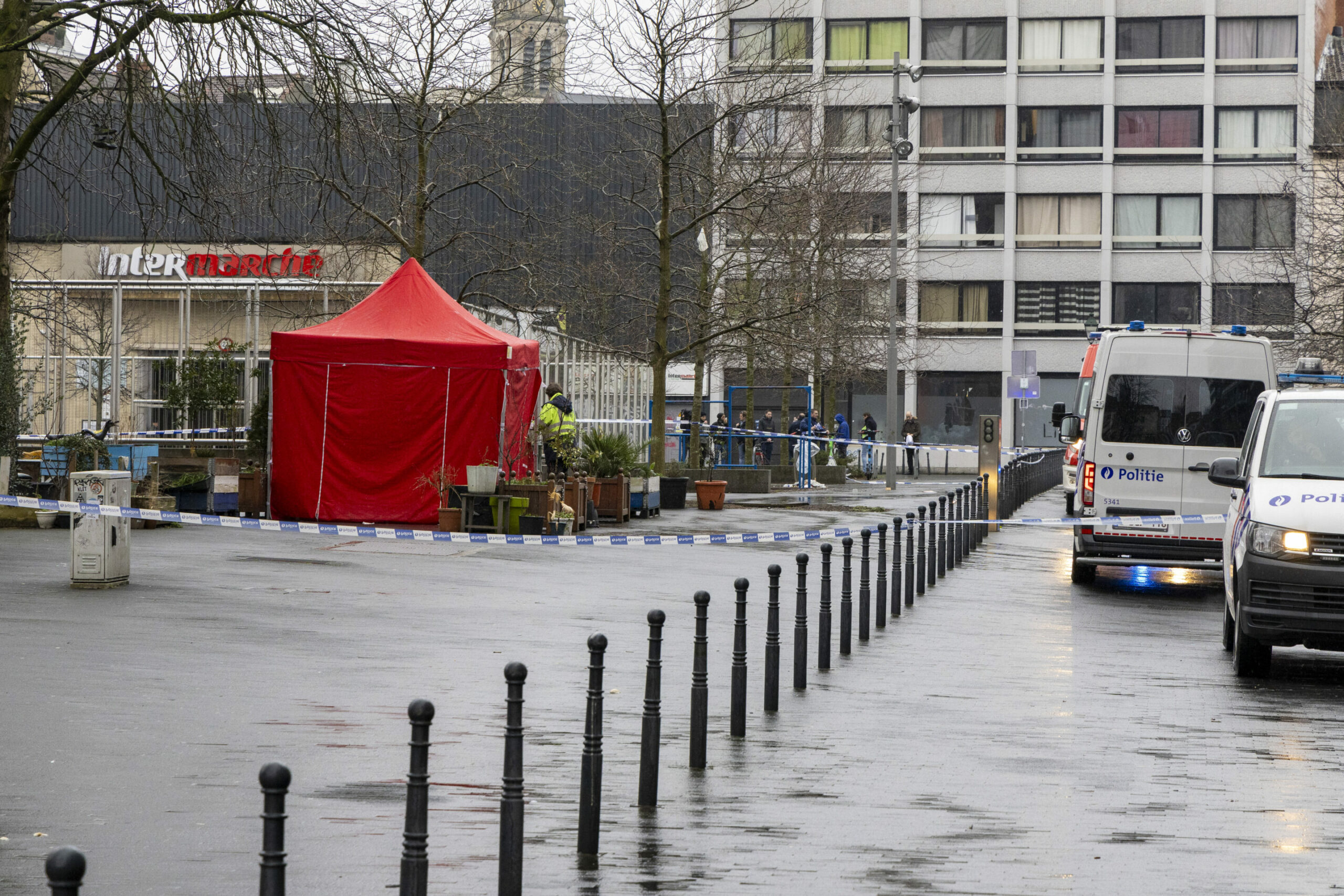
Police pictured on the scene where a suspected drug dealer was shot and killed at the in Saint-Gilles, Brussels on Wednesday 14 February 2024. Credit: Belga / Nicolas Maeterlinck
"MR has particularly been able to capitalise on these issues as a right-wing party, but with a conventional discourse, a discourse of firmness which is not necessarily aimed at recruiting more police officers, but above all at making the most of the manpower already present on the ground," Biard said.
Indeed, MR does not believe the Brussels police force needs to expand but has campaigned on improving the Belgian justice system. For example, Bouchez has often spoken out for tougher sentences and generally tightening up conditions for obtaining parole. And it is nothing new, MR's forerunners in the 1990s had also campaigned on similar points.
"We can see that when the context is right and these kinds of issues are at stake, it's much easier for the party to stand out and try to pull their weight. This is the case here.”
For MR, the issue of security in Brussels can be resolved by reducing the administrative workload for police officers and by a certain firmness, particularly in the application of the law and "strengthening the criminal arsenal," Biard explains.
Whether MR's tougher approach to security will improve things on the ground is to be seen. Ahead of the elections, the Federal Planning Bureau estimated that MR’s programme is expected to increase both the budget deficit and the public debt the most out of any Belgian party, unlike N-VA who scored well on both.
Will Bouchez’s electoral success propel him to lead the next Belgian Government? Unlikely, says Biard. The MR leader has already indicated that he is not insisting on leading the government, and Biard believes he could end up with a senior role such as the Walloon Minister-President, i.e. the head of the Walloon Government.
"He has a reputation for being a divisive figure, particularly among his former coalition partners. We could expect a government presided over by his character, not to be unanimous."

